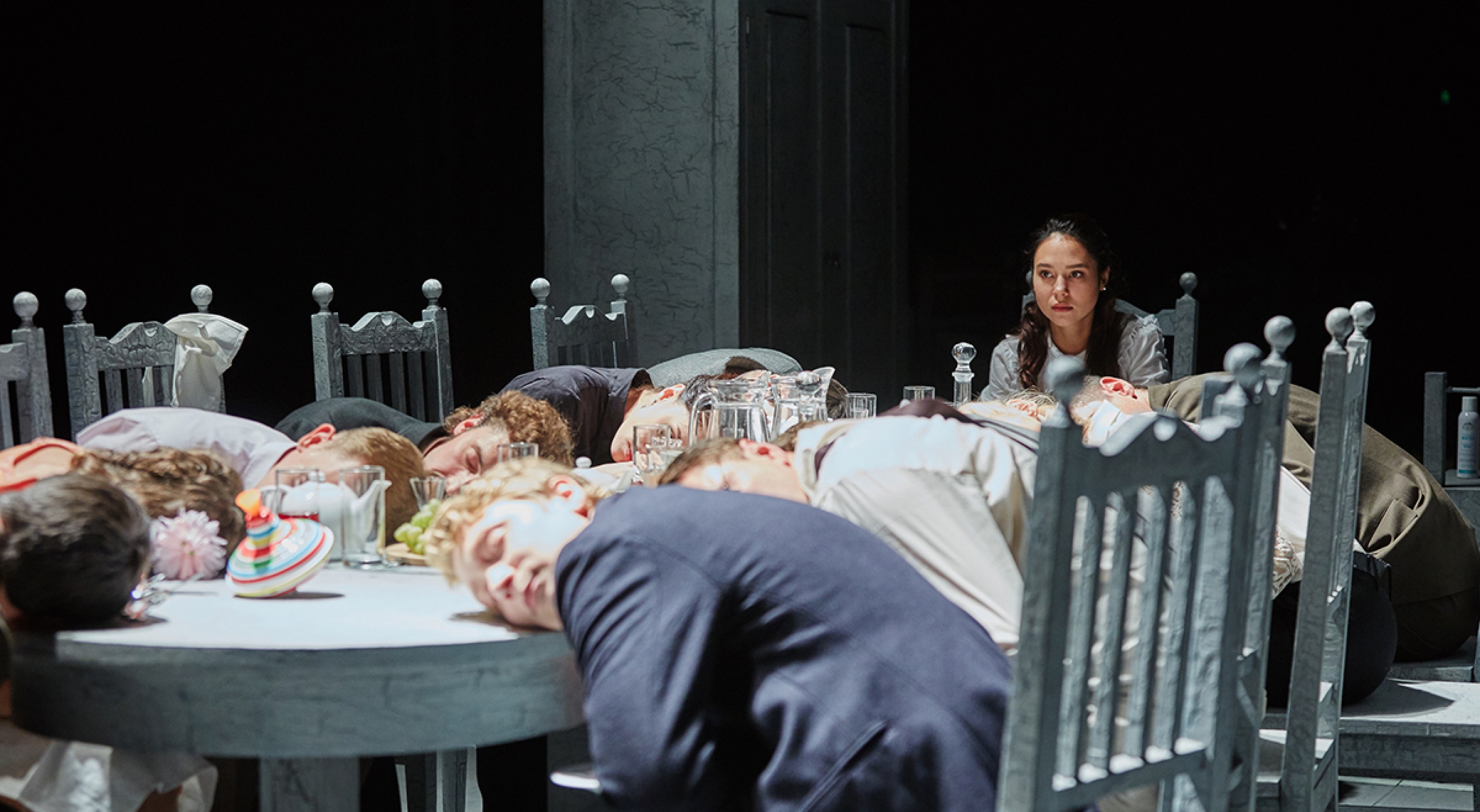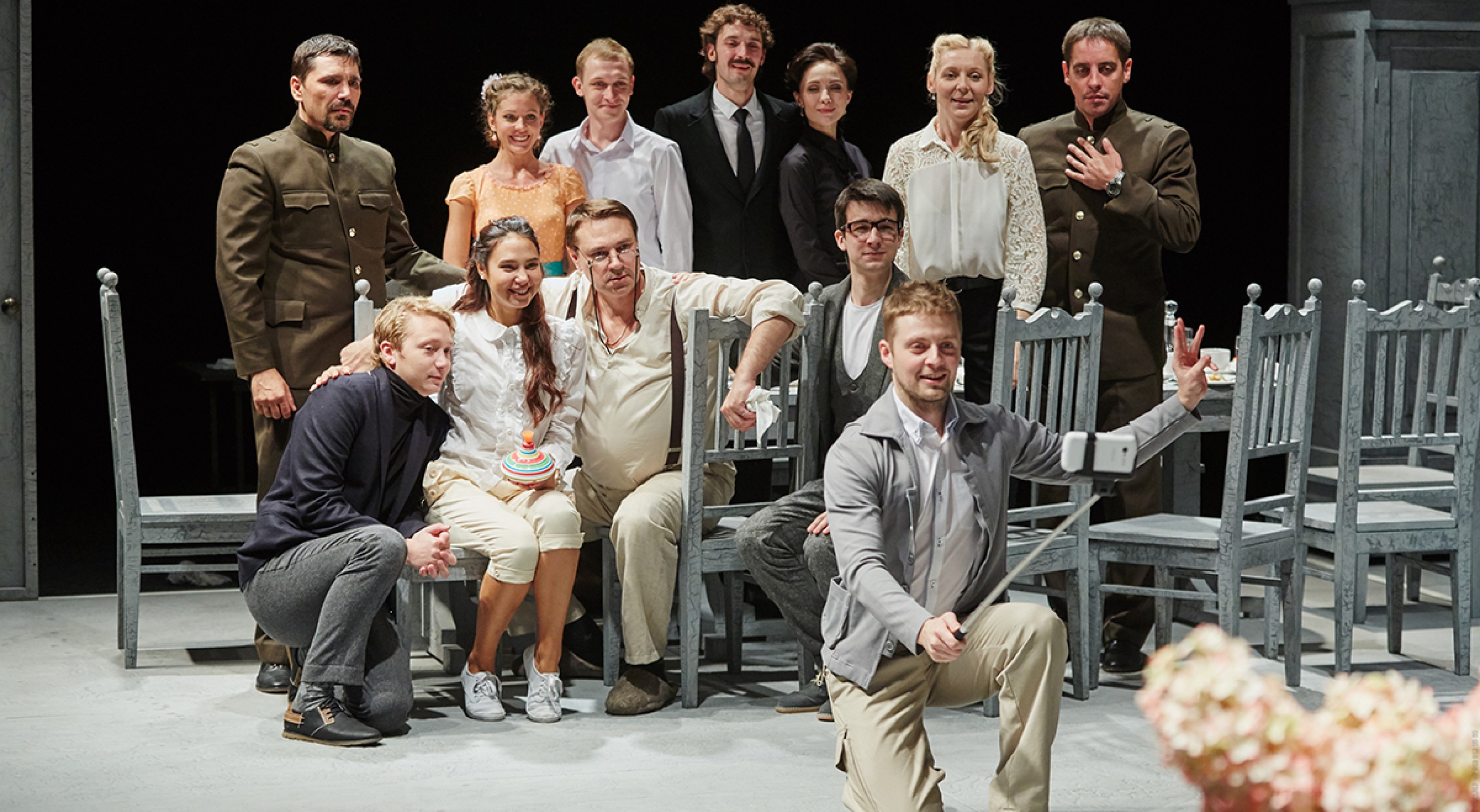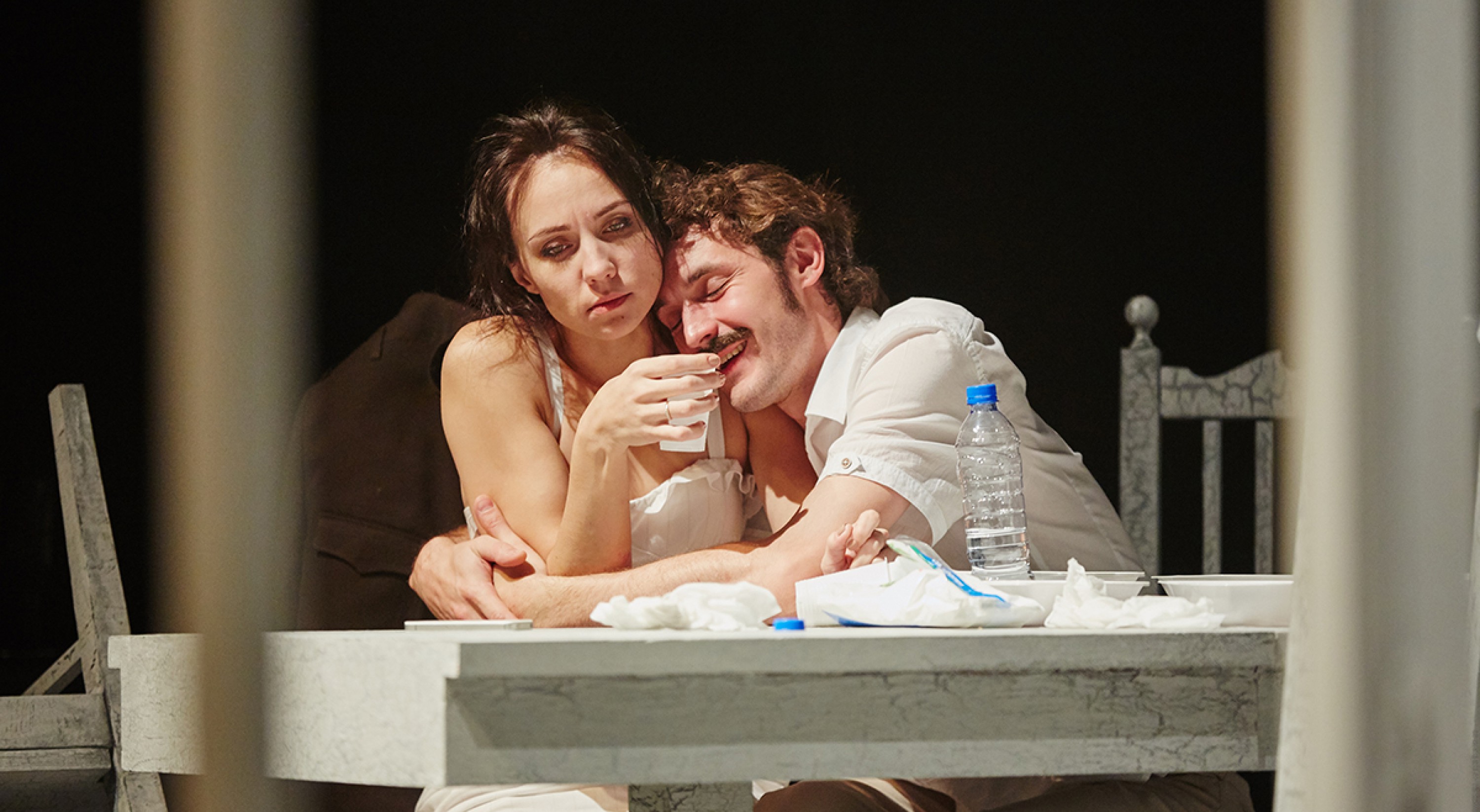Timofeï Kouliabine
Les Trois Sœurs
by Anton Chekhov
octoberoct 5 – 15
Directed by Timofeï Kouliabine
With Ilya Muzyko, Claudia Kachusova, Valeria Kruchnina, Irina Krivonos, Daria Yemelyanova, Linda Akhmetzyanova, Denis Frank, Pavel Polyakov, Anton Voinalovich, Konstantin Telegin, Andrei Chernykh, Alexei Mezhov, Sergei Bogomolov, Sergei Novikov, and Elena Drinevskaya
Stage design, Oleg Golovko
Lighting design, Denis Solntsev
Deaf culture advisors, Veronika Koposova, and Tamara Shatula
Sign-language instructor, Galina Nishchuk
Caption editors, Ilya Kukharenko, and Olga Fedyanina
Photography, Frol Podlesnyi
Assistant director, Natalia Yarushkina
Sound, Nina Belkina
Lighting, Anna Kolesnikova
Caption Operators, Yaroslav Kiselyov and Igor Lipatnikov
A Théâtre “Krasnyi Fakel” (Red Torch) – Novossibirsk production // In association with Odéon-Théâtre de l’Europe (Paris) ; and Festival d’Automne à Paris // With support from Adami // First performed on 11th September 2015 at the Red Torch Theatre, Novossibirsk // In partnership with France Inter
Timofeï Kouliabine, a leading figure in the young generation of Russian theatre-makers, has decided to stage The Three Sisters... in sign language. in doing so, he brings us a theatrical tour de force in which we are given an entirely fresh insight into Chekhov’s monumental text, but without losing any of its power and grandeur.
While studying at the Academy of Moscow, his teacher, Oleg Koudriachov, advised him and his fellow classmates to wait twenty years before even thinking of staging Chekhov. Timofeï Kouliabine, this prodigious figure in Russian theatre, decided not to follow this advice. After a number of productions, notably a highly memorable version of Eugene Onegin, Timofeï Kouliabine, at the tender age of 31 years old, now tackles a national monument in the form of The Three Sisters, the writer’s last-but-one piece. And in doing so, he also makes another dream of his come true, that of staging a piece of theatre using sign language. The result is breathtaking. Not only by virtue of the dramaturgical pertinence of associating the closed off universe of the Prozorov sisters, and their desperation at being exiled so far from Moscow, with that of the perception that deaf and dumb people sometimes have of an often hostile outside world. But also because by reducing this universe to silence, he restores to this otherwise “overdone” piece all its dramatic clout and resonance. Since Chekhov wrote it in 1901, the words of this text have been repeated by so many generations of actors that they run the risk of going unheard. In Kouliabine’s production, the gestures of the actors follow the choreography of the subtitles displayed on the screen. This enables the actors to find a physical resonance with Chekhov’s words, and to re-appropriate their infamous “sub-text” for themselves. Kouliabine’s gamble pays off: he delivers us a “show on the grandeur” of this text, which extends far beyond the words of the Prozorov sisters.
In the same place



